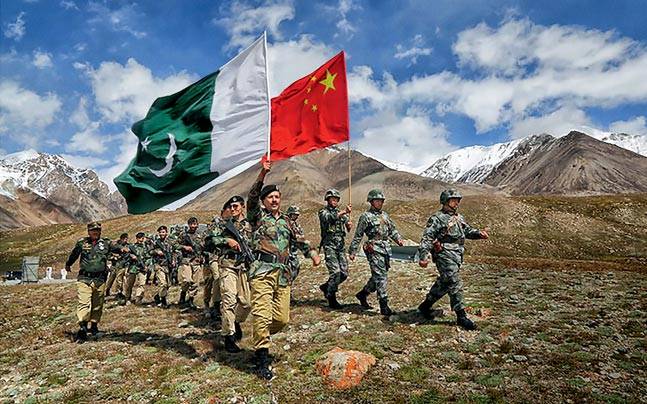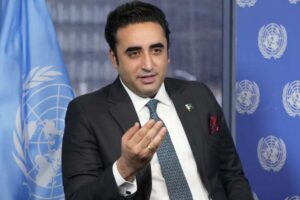
China-Pakistan pincer in Modi’s 10th year
If the ongoing Shanghai Cooperation Organisation (SCO) ministerial is unusually tense by the standards of such multilateral events, it is because two of its key members are at odds with the third. Or, if you find it more appropriate, because one of its key members, the host, is at odds with the other two.
Don’t fall for the temptation to say the more things change, the more they stay the same. There are indeed things that remain the same, like India’s slow strategic asphyxiation in the China-Pakistan pincer. Dr Manmohan Singh had described this as a straightforward case of China using Pakistan as a cheap instrument to ‘triangulate’ India. Beyond that, since he handed over the keys to Narendra Modi, much has changed.
This SCO summit is a good moment to take stock of what has changed, and what hasn’t. For now let’s focus on the three in our triangle. Then we will explore beyond this, too.
A good place to begin is an assessment of how each of the three neighbours’ Comprehensive National Power (CNP) has evolved in this post-2014 decade. The concept of CNP, by the way, is something we owe to the Chinese discourse. The expression’s Chinese original (zhonghe guoli) began appearing in publications emerging out of Beijing just over three decades ago.
As you would imagine, this takes into account a combination of a lot of factors — not all empirical or measurable — from the size and growth of the economy, the strength and cohesion of society, and the firepower and quality of the military, to trade and soft power. But these things are not so easy to quantify and convert into numbers or rankings.
On most metrics, Pakistan, for example, would be a near-nothing today. Where, however, will its 200-plus nukes and massive armed forces place it overall? Then, see it purely from India’s point of view. Thanks to its nukes and nuisance value, Pakistan isn’t as total a cipher as many in India would have wanted it to be. The determinants of a nation’s CNP, therefore, are also defined by how they affect their friends, adversaries, and neighbours.
Pakistan is today the weakest it’s been since the eve of the Soviet invasion of Afghanistan in 1979. It’s ruled by a coalition government with a pretence of being popularly elected but with even less credibility than dictator Zia-ul-Haq in 1979. I say that with care because Zia’s word was the law. Nobody will say so for Shehbaz Sharif’s or his Cabinet’s.
The economy is bankrupt, and the growth rate for the year — if you believe the IMF (which some consider optimistic) — is 0.5 per cent. It may go up to around 2 per cent next year. The income gap between Pakistan and not just India but all of the Subcontinent is now widening at a pace that should alarm Islamabad.
It won a suicidal, ego and ideology-driven victory in Afghanistan by defeating its own most valuable ally of 65 years, and is now left with almost no chips on the strategic negotiating table. If its geostrategic location has been Pakistan’s most significant, monetisable asset, it has blown it by backing the Taliban in that bizarre search for strategic depth. The Gulf Arabs have moved on from where commitment to Sunni Islam determined their policy choices in the region. They have no patience for Pakistan and its constant demands.



Average Rating